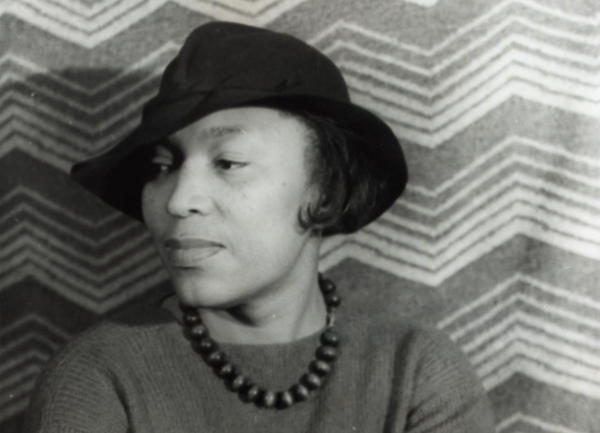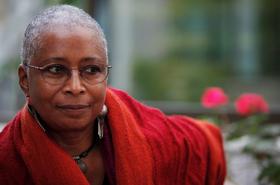Zora Hurston, Alice Walker Ties Explored In Writers Series
 Valerie Boyd discusses Zora Neale Hurston and Alice Walker with ''City Lights'' host Lois Reitzes.
Valerie Boyd discusses Zora Neale Hurston and Alice Walker with ''City Lights'' host Lois Reitzes.
In 1973, an aspiring but unknown young author visited the remote Florida gravesite of a long-forgotten writer and left a marker with a simple declaration: Genius.

Alice Walker was 28, and in the course of forging her own path to a literary career, she discovered the work of one of the luminaries of the Harlem Renaissance a half-century before.
Zora Neale Hurston died penniless and in obscurity in 1960 ─ her novels and other published works known mostly by her peers.
The connections between Walker and Hurston were explored this week by Valerie Boyd, an associate professor at the University of Georgia and the author of a 2004 biography of Hurston, “Wrapped in Rainbows.”
Boyd, a former arts editor at The Atlanta Journal-Constitution, spoke at the Balzer Theater at Herren’s downtown as part of the Southern Writers on Stage series at the Georgia State University Center for Collaborative and International Arts.
She also visited WABE studios for a recent live interview with “City Lights” host Lois Reitzes to talk about Walker, Hurston and their shared literary heritage as African-American women of the South.
As Walker rose to fame with the publication of “The Color Purple,” she also triggered a Hurston revival.
Hurston’s most famous work, the novel “Their Eyes Were Watching God,” was published in 1937, after the apex of the Harlem Renaissance.
How Hurston differed from other figures of that movement, Boyd told Reitzes, was her writing about the common people of her Southern world, what Hurston described as “the Negro farthest down.”
In that novel, Hurston wrote:
“Ships at a distance have every man’s wish on board. For some they come in with the tide. For others they sail forever on the same horizon, never out of sight, never landing until the Watcher turns his eyes away in resignation, his dreams mocked to death by Time. That is the life of men. Now, women forget all those things they don’t want to remember, and remember everything they don’t want to forget. The dream is the truth. Then they act and do things accordingly.”
Boyd said that “Hurston was ready for New York, but I don’t think New York and Harlem were ready for her. She was giving voice to self-educated blacks from the South. She was saying the language of these people was literature, of poetry, and she wanted to elevate it to that level.
“The South is our ancestral homeland, and that’s what she celebrated,” Boyd said.
The Southern Writers on Stage series continues on April 14, when Georgia State professor Pearl McHaney will deliver the lecture, “Eudora Welty: A Life in Letters.”
9(MDAxODM0MDY4MDEyMTY4NDA3MzI3YjkzMw004))





